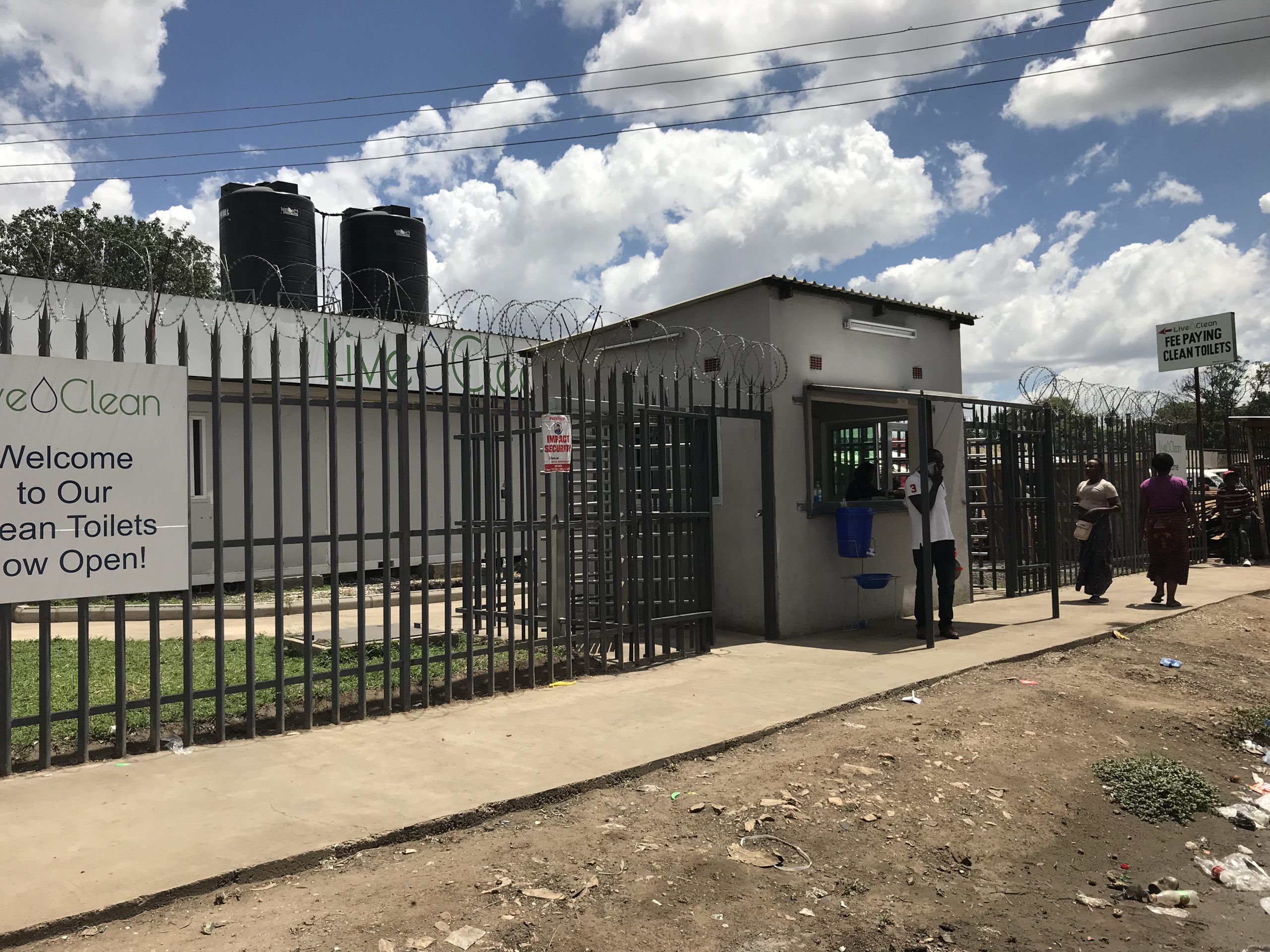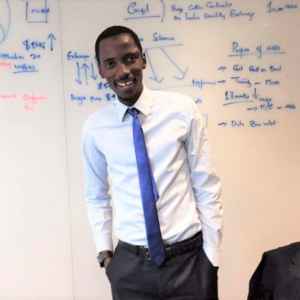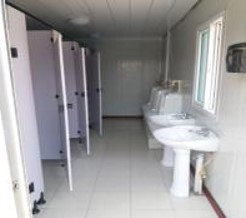Mwila Lando: “I realised how big a challenge sanitation was and I wanted to find a solution”
 When Mwila Lando started as a social entrepreneur, he was more concerned with farming than sanitation…until he came face to face with the run-down and unclean toilets in public markets in peri-urban areas of Lusaka. He suddenly realised how big a challenge sanitation was and has since made it his mission to provide clean, safe and affordable toilet and shower facilities. Starting a business in the sanitation sector in Zambia has not been without its challenges, but Live Clean has by now successfully installed several toilet and shower containers across Zambia. Read Mwila’s interview:
When Mwila Lando started as a social entrepreneur, he was more concerned with farming than sanitation…until he came face to face with the run-down and unclean toilets in public markets in peri-urban areas of Lusaka. He suddenly realised how big a challenge sanitation was and has since made it his mission to provide clean, safe and affordable toilet and shower facilities. Starting a business in the sanitation sector in Zambia has not been without its challenges, but Live Clean has by now successfully installed several toilet and shower containers across Zambia. Read Mwila’s interview:
 First, Mwila, can you explain what Live Clean is all about?
First, Mwila, can you explain what Live Clean is all about?
Live Clean is a social business that provides access to clean and affordable modern public toilets and shower facilities for the peri-urban areas in Zambia and the border posts with its neighbours. Live Clean toilets are built from cargo containers. In Zambia, 70% of urban ground water is contaminated and many people die every year from diseases related to poor sanitation, like cholera. Our sanitation system provides an effective solution to this problem.
Live Clean toilets and showers work as a closed loop system, could you explain this in further detail?
We are very concerned with the environment and want to make sure that our system minimises environmental impact at all stages of the sanitation process. We therefore collect rain water which is then reused in the toilets. The same goes for the water used in the showers. The toilet containers are designed to convert solid waste from the toilets into bio-fuel and fertiliser.
Gender is an important part of sanitation, how does Live Clean improve women’s access to safe sanitation?
One of our main objectives is to further the empowerment of women in Zambia. By providing modern sanitation facilities, women are offered an easier and cleaner alternative to pit latrines and makeshift holes. The toilets are secure and the sites are fenced and guarded to provide a safe environment. We also offer sanitary pads at minimal cost.
What motivated you to create Live Clean, how did it all start?
I run another company called Farmers Basket which consists of a mobile app that provides extension services and trading information to farmers. To understand how these markets behave, we spent a lot of time in public markets in peri–urban areas. In doing so, we realised how big a challenge sanitation was and I wanted to find a solution. I looked at NGO models, many of whom have failed, facilities are run-down and not clean, due to lack of maintenance. This was an awakening moment. I researched how much people would be willing to pay for toilets and if we could create a proper business around that price point. The Live Clean idea was born. We also needed to keep in mind that these locations had no sewer connection. We therefore had to create a waste water treatment solution that would have zero environmental impact.
With what kind of business model are you operating and where do you find support for your initiative?

We operate as a pay as you go model were clients pay for each use. This helps us to lower the costs and to give everyone access to water and sanitation. We sell personal hygiene, sanitary wear and home care products at our locations and we also offer phone charging facilities and mobile money transfer services. Our focus is not just on sanitation but also on improving the lives of the communities we live in. We are the first WASH business in the world, which has a loyalty program to incentivize use of our facilities – not through a point system, instead we offer various products that improve the lives of people thanks to our various partnerships with companies like Uniliver, Total, Hilton hotel, Abinbev and many others.
Could you share with us some of the biggest challenges you encountered as a sanitation entrepreneur and while building your sanitation business?
Up until now, sanitation services have been provided by governments and NGOs and taking a business approach to the problem is not always welcomed. There are deep-seated fears that you might be taking away jobs from government and NGO workers, when in fact we could be the implementing partners that guarantee the sustainability of the investments. NGOs and governments also take so much time to make decisions and it can be frustrating to work in this space. On the flip side, there are many opportunities, as other projects fizzle away. Furthermore, grant institutions working in the sector tend to focus a lot on reporting, leaving little time to focus on managing and running a business. I feel that we need to be more result-oriented. Last, but not least, sanitation is still not considered an investable business by many investors, hence it takes a lot longer to raise funds. Zambia also does not have a private equity or venture capital market, which compounds the problem.
You have developed a successful system and have received many awards, what are the next steps for Live Clean?
From my point of view, we still have a long way to go, we are just getting there in a sense. We now need to cement our position in Zambia and expand across the continent. We are currently working to build systems and processes. At the core of this is the development of a dynamic ERP solution that will be able to track impact in real time across operations with access to service numbers. We are also working on our human capital component to support the business expansion and are actively seeking to develop and attract top talent.
